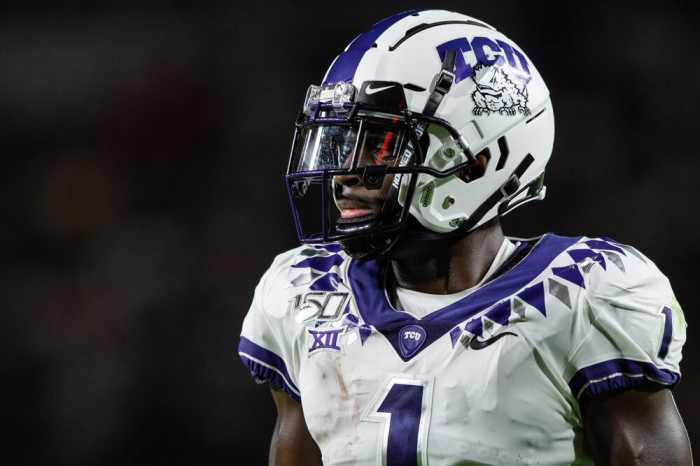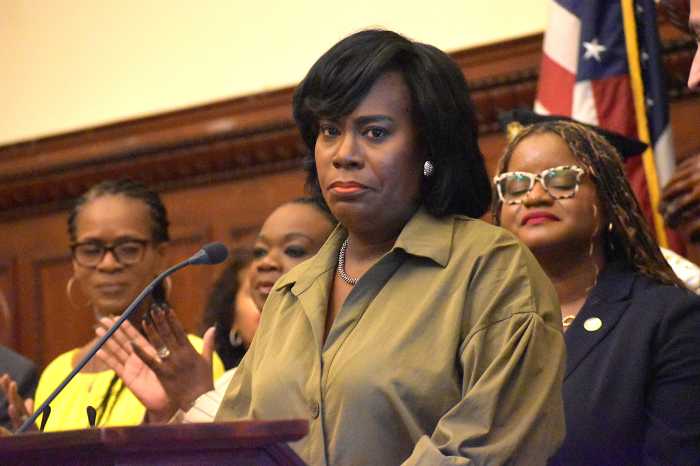A noticeable sentiment among Philadelphia Eagles fans and media is the dying outrage about the moves made by general manager (GM) Howie Roseman in the aftermath of the franchise’s first Super Bowl victory after the 2017 season.
Just days ahead of the 2022 NFL Draft, ESPN released their evaluations of the past 10 drafts based on Career Approximate Value Over Expected (CAVOE). The advanced formula is intended to measure the value of an NFL player’s performance compared to a baseline of the average performance of a player selected in a particular draft position.
The Eagles surprisingly finished sixth in the NFL behind only the Seattle Seahawks, Kansas City Chiefs, Baltimore Ravens, Dallas Cowboys, and Green Bay Packers.
The evaluation is a compliment to Roseman, who has been the final decision maker in football operations for the majority of the time frame in focus. However, one key distinction made by ESPN NFL Nation reporter Rich Cimini provided a caveat that shouldn’t be ignored.
“Every team has its share of “what if” skeletons in its closet, but the perennial contenders — mainly, the teams in the top half of our draft rankings — keep them hidden.”
-Rich Cimini
The skeletons of notable draft misses in recent years have hindered the Eagles, especially at the wide receiver and cornerback positions. However, the need to hide those skeletons is exactly what Roseman acknowledged by acquiring A.J. Brown last week.
A.J. Brown Fills Hole on Eagles Roster
Roseman’s most obvious misses in the NFL Draft have severely affected Philadelphia’s depth at the wide receiver position. The decisions to select J.J. Arcega-Whiteside with the 57th overall pick in 2019 and Jalen Reagor with the 21st overall pick in 2020 look indefensible with the benefit of hindsight.
To make matters worse, D.K. Metcalf (taken 64th overall in 2019) and Justin Jefferson (taken 22nd overall in 2020) quickly became top-tier NFL wide receivers almost immediately after Roseman passed on them.
In a twist of irony, Roseman fortified the wide receiving corps by acquiring the player taken six picks ahead of Arcega-Whiteside and 13 picks ahead of Metcalf in 2019. Brown is a 24-year-old stud who the Eagles should reasonably expect to finish with over 1000 yards per season if he stays healthy during the tenure of his newly signed four-year contract. DeVonta Smith, Quez Watkins, and Zach Pascal all slot into better roles with a true top receiver like Brown on the roster.
Roseman has acquired considerable draft capital through shrewd trades over the past two offseasons. The trades helped his ability to hide the skeletons of Reagor and Arcega-Whiteside when he flipped two of the acquired picks to the Tennessee Titans in exchange for Brown.
The ideal way to use resources to build an NFL team is by executing draft picks to find key cornerstone pieces who can contribute early in their careers without earning too much of a chunk of a team’s salary cap on an entry-level contract. However, as ESPN pointed out very simply in their evaluations, it’s nearly impossible for NFL GMs to achieve ideal circumstances with their draft decisions.
Roseman has been far from perfect with his draft history, but he has been a successful NFL GM in the big picture. In this case, he was able to use one of his strengths to cover one of his mistakes by flipping the plentiful draft capital to fix a problem he created by picking Arcega-Whiteside and Reagor.
More moves like the trade for Brown will help him continue to piece together a more complete roster even if the strategy doesn’t follow the ideal blueprint of drafting and developing at every position.
Questions at Cornerback
Roseman missed badly when he gambled on Sidney Jones with the 43rd overall pick in 2017. The former Washington star tore his Achilles before the draft, and the Eagles expected him to miss most if not all of his rookie season in recovery.
Jones played one game in 2017 and battled various other injuries throughout the next two seasons before his career with the Eagles came to an end. He was a liability on the outside for the majority of the 22 games he played in midnight green.
The Eagles also selected cornerback Rasul Douglas in the third round in 2017. The 6-foot-2, 209-pounder competed fiercely and produced at times, but he failed to establish himself as an unquestioned starter at any point in his three seasons with Philadelphia.
How did Roseman hide the skeletons of his failure to find a long-term solution at cornerback with a pair of early-round draft picks? He sent a third-rounder and a fifth-rounder in the 2020 draft to the Detroit Lions in exchange for Darius Slay. The Eagles immediately signed Slay to a lucrative extension after the trade.
The substantial investment will be worth it if Slay can continue the level of play that made him one of the top corners in the NFL in 2021. The move patched one hole. However, the Eagles still don’t have a proven starting corner on the opposite side. They must find another way to cover for past mistakes.
Roseman acquired Josiah Scott, Kary Vincent Jr., and Tay Gowan in trades within the past year. They also selected Zech McPhearson in the fourth round in 2021 and picked up Mac McCain III off the scrap heap.
The stockpile of cornerbacks ages 24 and younger provides the Eagles with plenty of options to find a diamond in the rough. If none of the five projects can emerge as a starting-caliber player, the Eagles will be forced to address another hole they’ve created for themselves through the inability to draft and develop cornerbacks.
History on Howie’s Side
The strength that factored most heavily into the Eagles earning the sixth spot in ESPN”s evaluation was Roseman’s ability to identify lesser-known prospects. Since 2012, he has used seventh-round selections on Jordan Mailata, Jalen Mills, Beau Allen, Jordan Poyer, and Bryce Brown. He selected Quez Watkins in the sixth round in 2020 using the strategy of investing a high volume of low-risk moves at one position. The Eagles also took future Hall of Famer Jason Kelce in the sixth round in 2010 when Roseman worked closely with former head coach Andy Reid on personnel decisions.
The Eagles hope the history will repeat itself with one of their young corners.
Roseman successfully solved a similar problem at cornerback in 2017. Three years earlier, the Eagles missed on Jaylen Watkins with a fourth-round pick. The following season, they handed personnel control over to former head coach Chip Kelly.
The misguided decision to trust an NFL novice with full power over personnel is, in itself, a skeleton in Philadelphia’s closet. Kelly’s most obvious miscalculations during the 2015 NFL Draft were at cornerback. He spent the 47th overall pick on Eric Rowe, who lasted only one season before moving to the New England Patriots. The supposed revolutionary NFL mind also spent a pair of sixth-rounders on JaCorey Shepherd and Randall Evans. Neither of the low-risk choices provided the Eagles with a starter.
Roseman’s decision to draft Mills in 2016 despite character concerns paid off. “The Green Goblin” became a solid starter for the Super Bowl champions in his second NFL season. Roseman also made the trade for Ronald Darby during training camp in 2017 to acquire a second starter. The corners were not the strength of the Super Bowl team, but they played well enough to give the team a chance to win.
Eagles Look “Better off the Bus”
The Eagles added six players to their organization at the 2022 NFL Draft in Las Vegas over the weekend. Their moves graded out well in the immediate aftermath, but as always, only time can measure the merits of a particular draft.
Sheil Kapadia of The Athletic pointed out the concept of looking “better getting off the bus now” with the additions of Brown and first-round pick Jordan Davis. The threat of quality NFL talent never convinced anyone that the 2021 Eagles could become a serious contender, but they have now upgraded their previously underwhelming roster.
However, there are still several key holes left to fill. Roseman will need to continue his effort to hide the skeletons of past mistakes if he hopes to continue to solidify the roster and allow the Eagles to emerge as a Super Bowl contender in the coming seasons.
Photo by Michael Allio/Icon Sportswire



























